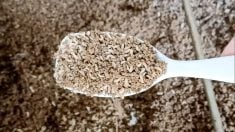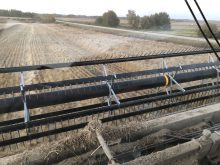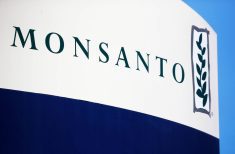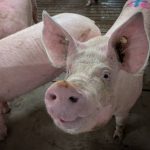Every now and then I’ll still hear someone bring up the infamous McDonald’s hot coffee case — usually as a narrative shorthand to describe a world where nuisance lawsuits run wild.
In case you’ve somehow never heard of it, that case involved a woman in the U.S. who, in 1992, accidentally spilled hot takeout coffee in her lap and eventually sued McDonald’s over the resulting injuries.
All most people remember is “lady spilled coffee on self, sued McDonald’s for millions” despite the fact she was awarded far less than that in the end.
Read Also

OPINION: Ag Days 2026 moved talk from trade anxiety to tactics
Farmers, speakers and exhibitors at Manitoba Ag Days 2026 were again talking trade uncertainty and tariffs, but this year’s tone felt more proactive.
I suspect the story would sit much differently in the public consciousness if any of us were ever to see the pictures the jury saw of the third-degree burns she received because the restaurant, we now know, had been serving coffee at temperatures dangerously above the range at which any of us would ever drink the stuff — not to mention that the company had at first offered her only $800 toward her treatment, which had to include skin grafts.

I bring that up today with glyphosate in mind. To recap quickly, Bayer’s CEO last month was quoted in the Wall Street Journal as saying the company is “pretty much reaching the end of the road” on marketing Roundup in the U.S.
For Bayer that road would be ending in a swamp of lawsuits filed by users claiming their exposure to the product led them to contract cancer.
Bayer, which picked up the Roundup portfolio when it bought Monsanto in 2018, says it has so far set aside $16 billion (all these figures US$) to settle such claims.
To be sure, many cancers are no hot coffee burn; it’s difficult at best to assign an indisputable exact cause. Going by the jury awards against Bayer so far, though, the company may well wish it had been in the coffee business instead.

The cancer allegations arose in the wake of a 2015 report by the World Health Organization’s International Agency for Research on Cancer (IARC), classifying glyphosate in its Group 2A, “probably carcinogenic to humans.”
Bayer, on its website, considers itself to be the victim of the U.S. lawsuit complex, in which lawyers and third-party venture capitalists aggressively seek plaintiffs whose illnesses they can exploit in return for a substantial cut of the resulting awards.
Where does all this leave you, the Prairie farmer who’s come to rely on glyphosate to keep problem weeds in check and reduce or eliminate tillage? One might reach for the jug of generic off-patent glyphosate. Bayer’s CEO told the WSJ he expects no other U.S. company would be willing to assume the risk of replacing Bayer’s domestic glyphosate production here, meaning the product, if available at all, would be coming from overseas.

Bayer did observe in 2020 that the settlement fund it set up at that time for U.S. cases does not cover Canadian lawsuit, because of “very different considerations” in Canadian law and damage claims — but such lawsuits in Canada remain very much in play.
Will the makers, distributors and retailers of generics in Canada accept ongoing legal risk if Bayer does follow through and step out of the glyphosate business?
Should the federal government, whose agencies insist glyphosate is safe if label directions are followed, bear the burden of responsibility to assure its continued availability in Canada, given the wider, deeper environmental footprints of other available weed control options?
If not, then for Prairie farmers, the alternatives will be a very bitter cup of coffee to swallow.















